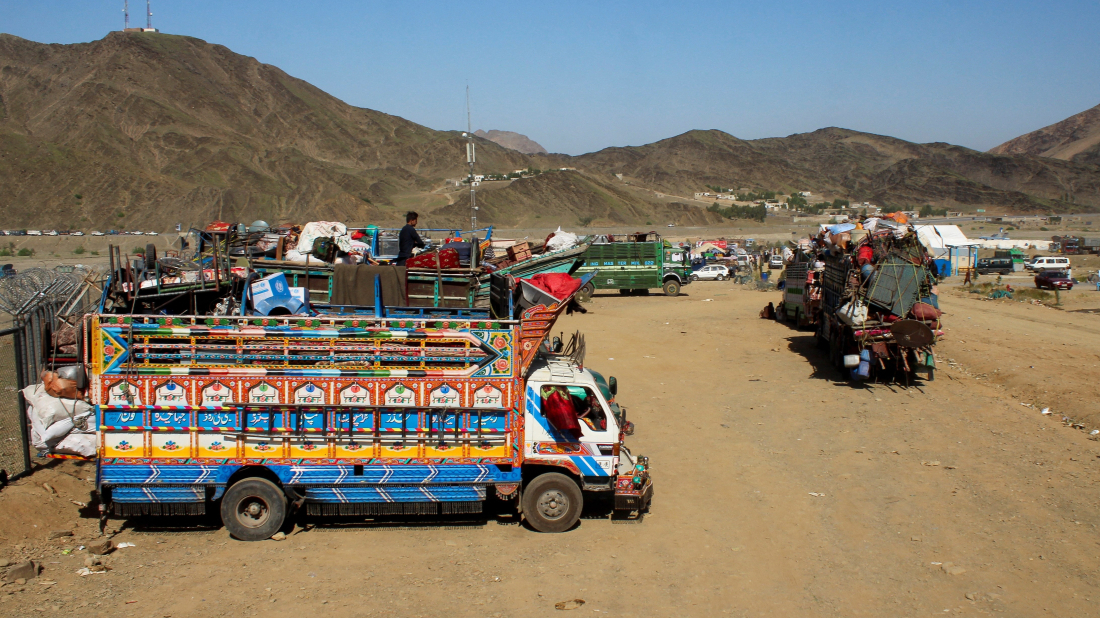Trump says additional talks with Iran expected on Friday
Tensions between the U.S. and Iran are escalating, with Washington ordering a significant military build-up in the region and multiple countries evacu...

Pakistan has begun expelling documented Afghan refugees weeks before its 1 September deadline, the UN refugee agency says, warning that the early removals breach international law and could uproot more than one million people.
The UN High Commissioner for Refugees (UNHCR) said on Wednesday it had received “credible reports” of arrests and deportations of legally registered Afghans since 1 August and urged Islamabad to “stop the forcible return and adopt a humane approach to ensure voluntary, gradual and dignified repatriation.”
UNHCR spokesman Qaisar Khan Afridi told Reuters that “hundreds” of refugees holding valid papers were detained and sent back to Afghanistan between 1 and 4 August, despite a government order stating that formal expulsions would begin only after next month’s deadline.
About 1.3 million Afghans hold Proof of Registration cards and a further 750,000 possess Afghan Citizen Cards, according to Pakistani officials. Many families have lived in Pakistan since the Soviet–Afghan war of the 1980s.
An interior-ministry directive seen by Reuters says “voluntary return” of documented refugees should start immediately, with mass deportations to follow if they remain after 1 September. The ministry did not respond to requests for comment on UNHCR’s allegations.
The removals are part of the Illegal Foreigners Repatriation Plan launched in late 2023. Islamabad blames Afghan nationals for militant attacks and crime; Kabul rejects the charge and brands the policy forced deportation. Aid agencies warn that sudden, large-scale returns could deepen instability in Afghanistan, which also faces new mass expulsions from neighbouring Iran.
Tensions between the U.S. and Iran are escalating, with Washington ordering a significant military build-up in the region and multiple countries evacuating diplomatic staff amid fears of further instability.
The situation in Cuba was heating up and called for restraint following a deadly incident involving a Florida-registered speedboat off the coast of the Caribbean island, the Kremlin said on Thursday (26 February).
Russian President Vladimir Putin’s special envoy, Kirill Dmitriev, arrived in Geneva and may hold talks with U.S. officials, according to the RIA news agency.
Pakistani air strikes hit a weapons depot on the western outskirts of Kabul overnight, triggering hours of secondary explosions that rattled homes across the Afghan capital and left residents fearing further violence.
Another shipment of petroleum products from Azerbaijan to Armenia has been dispatched, with 39 rail tank cars carrying 4,500 tonnes of diesel fuel sent today, Report informs.
Tensions between the U.S. and Iran are escalating, with Washington ordering a significant military build-up in the region and multiple countries evacuating diplomatic staff amid fears of further instability.
Two people were killed and around 40 injured when a tram derailed in central Milan on Friday (27 Februrary), a spokesperson for local firefighters said.
Colombia’s commerce minister, Diana Marcela Morales, has said she will propose raising tariffs on certain Ecuadorian goods from 30% to 50%, as a trade dispute between the neighbouring countries intensifies.
Former U.S. President Bill Clinton said on Friday (27 February) that he had no knowledge of the crimes committed by Jeffrey Epstein and would not have flown on the late convicted sex offender’s plane had he had any inkling of his activities.
Some of Iran's most highly enriched uranium, close to weapons grade, was stored in an underground area of its nuclear site in Isfahan, the UN nuclear watchdog said in a confidential report sent to member states on Friday (27 February).
You can download the AnewZ application from Play Store and the App Store.

What is your opinion on this topic?
Leave the first comment